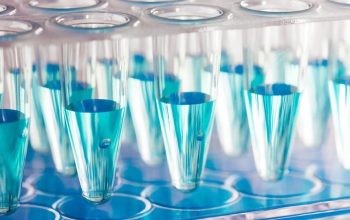Leveraging ELISA Assay Validation in Cancer Research
In the realm of cancer research, in vitro assay development plays a pivotal role in unraveling the complexities of tumor biology. This section explores the significance of ELISA assay validation as a crucial component in enhancing the reliability and accuracy of in vitro assays, providing a foundation for the development of targeted anti-cancer drugs.
Importance of In Vitro Models in Advancing Cancer Research
Understanding the critical interplay between in vitro and in vivo models is essential for progressing cancer research. This section highlights the necessity of in vitro models in decoding molecular mechanisms involved in pivotal events like metastasis, drug resistance, immune evasion, and tumor growth. The focus is on optimizing in vitro assays to maximize the potential of drug compounds and address the challenges that hinder the success rate of anti-cancer drugs reaching the market.
Challenges in Anti-Cancer Drug Development
Despite the ongoing efforts in cancer research, only a small percentage of anti-cancer drugs make it to the market. This section delves into the primary reasons behind this slow growth, emphasizing the role of intolerable toxicity and inefficiency. The discussion underscores the importance of relevant bioanalytical testing, laying the groundwork for the subsequent exploration of in vitro assay development.
Robust Bioanalytical Method Development and Validation
Regardless of the chosen method, the article emphasizes the criticality of robust bioanalytical method development and validation. This section underscores how these processes are fundamental to delivering reliable and accurate results in in vitro assays, ensuring that the data generated contributes meaningfully to the field of cancer research.
2D and 3D In Vitro Assay Development Approaches
Examining the landscape of in vitro assay development, this section discusses the commonly used 2D cell culture method in cancer research. While cost-effective and straightforward, it has limitations. The discussion then shifts to the advantages of 3D cell culture models in more accurately representing the tumor microenvironment and addressing the shortcomings of 2D cultures.
Designing Complex 3D Cultures for Tumor Microenvironment Representation
Highlighting the evolution in in vitro models, this section explores various approaches to designing 3D cultures, including scaffold-based cultures, non-scaffold-based cultures, specialized 3D cultures, and hybrid systems. Emphasis is placed on how these approaches contribute to a more comprehensive understanding of tumor biology and aid in drug development.
Challenges and Opportunities in In Vitro Tumor Models
Examining the source of cancer cells in in vitro tumor models, this section discusses the use of commercially available cell lines and the co-culture approach involving multiple cell types to mimic the tumor microenvironment. It also introduces the concept of multicellular tumor spheroids in 3D in vitro models and analyzes the reasons behind the limited adoption of these advanced models in cancer research.
Conclusion:
The integration of ELISA assay validation in in vitro assay development for cancer research marks a significant advancement in uncovering new insights into tumor biology. As the field continues to evolve with the exploration of 2D and 3D models, the article underscores the importance of overcoming challenges, embracing advancements, and leveraging pharmacokinetics services to propel anti-cancer drug development forward.




